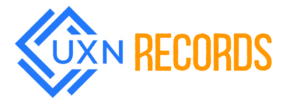Risk management in healthcare is vital to ensure patient safety, staff well-being, and organizational compliance. Hospitals face numerous challenges when tracking and addressing incidents, making streamlined processes essential. Utilizing hospital risk management software is a professional solution that streamlines incident reporting, identifies risks, and ensures timely responses to mitigate them. This software enables healthcare facilities to manage risks more efficiently while adhering to industry regulations.
Beyond just reporting, risk management software ensures that hospitals maintain transparency and accountability, improving overall trust and operational integrity. Below, we explore the importance of this technology and how it transforms incident reporting into an indispensable part of healthcare risk management.
The Importance of Hospital Incident Reporting
Accurate and reliable incident reporting serves as the foundation of hospital risk management. Through meticulous records of errors, near-misses, or hazardous events, facilities gain critical insights into recurring issues. These insights allow administrators to address vulnerabilities before they escalate into larger problems. However, manual systems or outdated tools often slow down this process and lead to gaps in reporting. Software solutions ensure no incident goes unnoticed, offering automated tracking and detailed reporting capabilities.
How Risk Management Software Streamlines Incident Reporting
Hospital risk management software enhances incident reporting by simplifying documentation, standardizing processes, and offering analytical insights.
Automation and Accuracy
Automated workflows provided by these systems remove the guesswork in incident management. From notifying appropriate teams to generating real-time reports, automation enables hospitals to focus on resolving issues instead of sifting through cumbersome paperwork. Modern tools also offer predictive analytics, allowing healthcare practitioners to anticipate risks and address them proactively.
Compliance and Risk Mitigation
One of the critical functions of incident reporting software is ensuring compliance with healthcare standards. It supports organizations in meeting regulatory requirements while maintaining meticulous records in case of audits. This capability makes it easier to demonstrate adherence to best practices and industry guidelines.
Additionally, leveraging software tools aligns with larger discussions in the healthcare industry, like understanding why third-party risk management is important for healthcare compliance. Healthcare organizations often depend on external vendors and suppliers, and managing risks in these relationships is essential to operational compliance. Risk management tools offer an integrated approach to tackle such challenges efficiently.
Integrating Automation in Risk Management
Automation plays a crucial role in enhancing overall risk management capabilities.
Integrating automated features into incident reporting ensures consistency, reduces human errors, and speeds up resolution time. This aligns with broader discussions on the role of automation in third-party risk management, which highlights the significance of data-driven technologies in comprehensive risk management. By automating multifaceted tasks, hospitals can improve both internal operations and external collaborations with stakeholders. Automation strengthens their ability to adapt to an evolving healthcare landscape.
Why Hospitals Should Prioritize Professional Risk Management Tools
Professional hospital risk management software goes beyond basic reporting. It includes integrated dashboards, real-time notifications, and customizable workflows that meet the unique demands of healthcare environments. Investing in these tools not only enhances operational efficiency but also builds a culture of accountability and safety.
Unlike manual methods, professional services ensure continuous system updates and adherence to best practices. By choosing reliable software, healthcare providers also benefit from scalable solutions tailored to future growth and challenges.
Conclusion
Effective hospital risk management requires a holistic approach, and incident reporting is at the heart of that effort. Using software solutions tailored for this purpose ensures that hospitals remain compliant, prepared, and agile in addressing potential risks. From automating workflows to supporting comprehensive reporting systems, the value of hospital risk management software is undeniable. By prioritizing these professional tools, healthcare facilities can enhance patient care and secure long-term operational success.


Comments are closed.